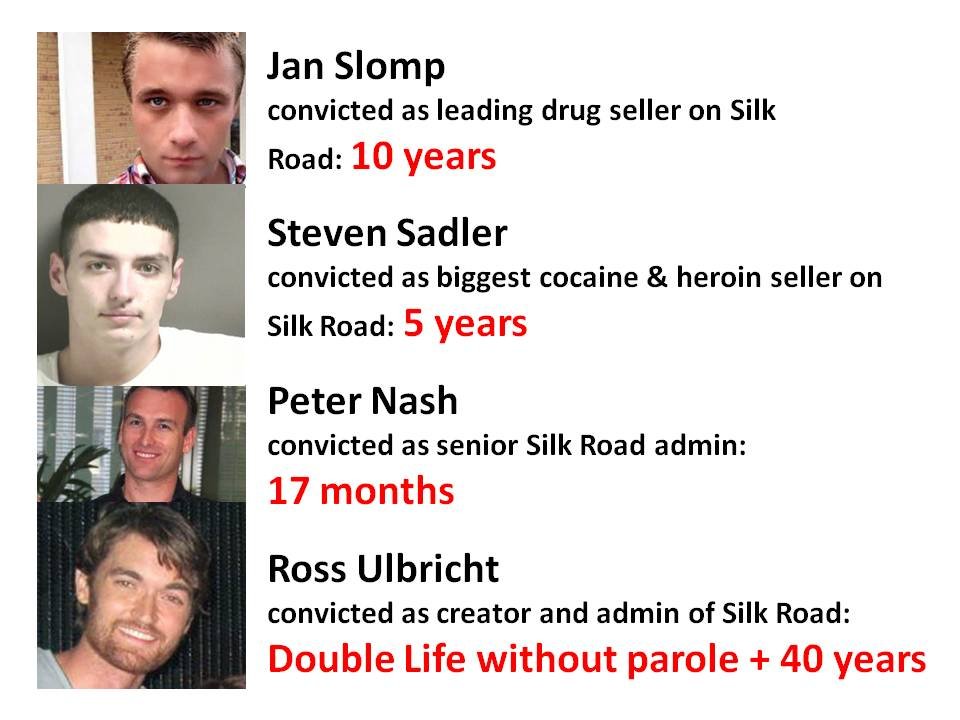When my son Ross Ulbricht was arrested and brought to trial, many called him a political prisoner. Yet I wasn’t so sure this was true. When a HuffPostLive interview ran the headline: "Silk Road Founder Is A ‘Political Prisoner,’ Mother Lyn Ulbricht Says." I was uncomfortable with it (especially since I didn’t exactly say that).
Even by the sentencing I wondered if calling Ross a political prisoner might be exaggerated, too dramatic. But then the other Silk Road defendants were sentenced by a different Judge, and I was finally convinced that yes, Ross is a political prisoner. I see no other explanation for his excessive sentence.
People convicted as top drug sellers on Silk Road got a relative slap on the wrist. A top administrator during the height of Silk Road got 17 months (yes months, -- time served) and (I’m happy to say) is now a free man. Recently Brian Farrell, a top admin of Silk Road 2.0, got 8 years. Yet Ross got double life + 40 years, with no possibility of parole. Why?

It is actually against the law to give a sentence so out of proportion. The punishment must fit the crime and be at least in the same ballpark as those with similar offenses. Congress passed the Sentencing Reform Act forbidding such disparity, which Ross’ appeal calls “grotesque.”
I now think it is obvious from these other sentences that the Silk Road case was not about drugs, not about a product, but about a platform. I believe the government considered that platform a dangerous political threat, needed an example, and Ross was it. The government and the court made this quite clear.

As Ross’ appeal points out, basing a sentence on someone’s political philosophy violates the First Amendment’s guarantee of freedom of speech and is never the basis for a lawful or reasonable sentence.
In spite of this, the government maintains in its brief that Ross’ life sentence is reasonable. In it they express doubt that Ross had abandoned the beliefs that led him to start Silk Road. The Judge agreed, stating: “It is also notable that the reasons that you started Silk Road were philosophical and I don't know that it is a philosophy left behind.”
The Judge called this philosophy “deeply troubling and terribly misguided and also very dangerous." Yet the law, which she took an oath to uphold, states that considering someone’s philosophy is “an irrelevant and prohibited factor” in sentencing, forbidden not only by the Constitution, but the Sentencing guidelines. It is clearly unlawful that the Judge sentenced Ross more severely because she was not sure he had abandoned his views and beliefs.
As a lawyer I know said:
“Neither Thomas Jefferson nor James Madison would likely not have fared well if brought before Judge Forrest, because of their similarly ‘dangerous’ views.”
Ross’ sentence also flies in the face of precedent. Previous courts have ruled: "The freedom of speech and of the press guaranteed by the Constitution embraces at the least the liberty to discuss publicly and truthfully all matters of public concern without previous restraint or fear of subsequent punishment." Thornhill v. Alabama. And “[S]peech concerning public affairs is more than self expression; it is the essence of self-government.’’ Garrison v. Louisiana.
In addition, according to other courts, the expression of political views concerning drug laws involves core political speech, an area where First Amendment protection is “at its zenith.” Meyer v. Grant.
Judge Forrest may personally find Ross’ political views troubling and dangerous. However, it is not within her authority as a United States District Court Judge to consider his political views in determining a sentence.
In fact, it is against the law.
That a Judge would, in part, issue a life sentence based on political beliefs and statements should frighten us all.
